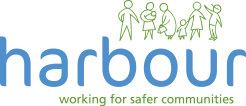Keeping safe
The most important step you can take to protect yourself and your children from abuse is to build a safety plan.
Since you know your abuser's actions and behaviour, you can use this knowledge and build a plan.
Your plan may include some of the following:
- Practice how you will leave the home safely in an emergency
- Teach your children how to call 999
- Tell at least one trusted family member or friend what is happening
- Arrange to have a safe place to go to
- Prepare a small bag of clothes, medication and other essentials for yourself and your children. Hide the bag where you can get to it in a hurry if you have to leave quickly
- Make several copies of important papers and keep one set in the bag (other copies could go to trusted friends or be left somewhere safe, e.g. at work). You will need things such as driving license, birth certificates, passports, financial/insurance information, benefit letters, court orders etc.
- Keep your address book and diary with you
- If you have a car, hide the extra set of keys where you can get to them if you need to.
If you are experiencing abuse it is important to tell someone before it gets worse. If you are experiencing violence or threats of violence, please go into your local police station for help or call the Police on 101, which is their non-emergency number.
If you or your family are in immediate danger don't be afraid to call the police on 999.
You can of course contact us at Harbour by telephone (03000 20 25 25) or via our Facebook page which has a private messaging facility. www.facebook.com/harboursupportservices
Women’s Aid has produced an excellent resource for those in an abusive relationship known as the Survivor’s Handbook. It can also be viewed in different languages and formats on their website: Visit the Survivor's Handbook
